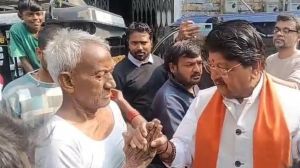Sorry, no credit
It took Prime Minister Manmohan Singh one visit to Vidarbha to identify the debt trap that snared farmers. Farmers, he said after last year8217;s visit, need a reliable network of formal...

It took Prime Minister Manmohan Singh one visit to Vidarbha to identify the debt trap that snared farmers. Farmers, he said after last year8217;s visit, need a reliable network of formal credit if were to keep away from moneylenders.
A year on, little has changed. Even if farmers do manage to get crop loans, getting credit for tractors isn8217;t easy. The National Bank for Agriculture and Rural Development NABARD, which formulates guidelines for banks that finance the farm sector, has washed its hands off loans for tractors.
Earlier, NABARD had stipulated that a farmer with eight acres would be eligible for a tractor loan. But last year, it withdrew this norm and asked banks to evolve their own criteria. The result: banks now have stricter norms and higher collaterals, making it almost impossible for farmers to get tractor loans.
For instance, a commercial bank recently issued guidelines that said a farmer who owns a minimum of 10 acres of land and grows three crops would be eligible for credit to purchase a 35 HP tractor. If he wants to purchase a more powerful tractor, he will have to own at least 15 acres and grow three crops a year.
Requests for over 45 HP tractors have to clear technical appraisals by the bank8217;s zonal office. In several cases, banks have restricted the number of co-borrowers to three. The revised guidelines of a commercial bank say: 8220;All borrowers should belong to the same family.8221; This restricts farmers from jointly owning a tractor.
8220;NABARD8217;s stipulation of eight acres was too high, denying small and marginal farmers the benefit of tractor loans. But now commercial banks have gone ahead and are evolving even more stringent criteria,8221; said Ravindra Kumar, managing director of SAS Motors, who developed the low-cost Angad tractors.
While the V.S. Vyas panel on the flow of credit to agriculture had recommended that collaterals should not be in excess of the financed amount, banks are doing just that. Similarly, the R.V. Gupta panel set up by the RBI had said: 8220;The value of security taken should be commensurate with the size of the loan.8221;
Kumar said some banks even held back general credit in regions where there had been defaults. Kumar alleged that such a credit policy had confined farm mechanisation to select regions of the country.
- 01
- 02
- 03
- 04
- 05































